ARTICLES > THRIVE
EATING WELL FOR A HEALTHY BABY
Congrats – you’re pregnant! But what if you have coeliac disease? Here’s what you need to know.
By Penny Dellsperger
If you’ve been diagnosed with coeliac disease, you might be wondering about how to manage your gluten-free diet while pregnant or trying to conceive. As long as a gluten-free diet is maintained during conception and pregnancy, outcomes for someone with coeliac disease should be like any other.
The following is general information about diet during pregnancy, with tips for those with coeliac disease where relevant. It is important to seek specific advice from an Accredited Practising Dietitian (APD) for individual dietary needs and medical advice from your doctor or specialist.
YOUR DIET: QUANTITY VS QUALITY
The most important dietary consideration for an expectant mother is the nutritional quality of food. It’s a common misconception that women who are pregnant must ‘eat for two’… a more accurate approach would be to ‘eat for 1.1’. While energy requirements do increase in the second and third trimesters of pregnancy, an additional 600kJ/day is all that is required. This is equivalent to:
- An apple plus a hard-boiled egg, or
- A tub of low-fat fruit yoghurt, or
- 250ml low-fat chocolate flavoured milk
For a multiple pregnancy (twins or triplets), energy requirements will be higher.
What is more important is the amount of vitamins and minerals in your diet, not the number of calories. What you choose to eat is more important than how much you consume. Energy dense, fatty or sugary foods that contain limited nutrients should be moderated, with a focus on foods packed with the nutrients you and your baby need.
WEIGHT GAIN
The amount of weight gain required during pregnancy will depend on your body shape and weight prior to pregnancy.
Around 10–13kg should be gained by women who are a healthy weight prior to pregnancy. Less weight gain may occur if you were above the healthy weight range prior to falling pregnant. In the early months of pregnancy, weight gain is generally slow (perhaps 1–2kg over the first three months).
A baby’s growth is more rapid during the second and third trimesters (about 0.4g gained per week). Additional weight gain will occur in multiple pregnancies (e.g. twins, triplets). It is important not to skip meals or diet whilst pregnant – your baby grows and develops every day and needs you to maintain a balanced, healthy diet.
FLUID
Fluid requirements increase during pregnancy to support foetal circulation, amniotic fluid and the mother’s higher blood volume. Approximately 2.3L is required each day. More is required during exercise, in hot weather, or if long periods are spent in airconditioned environments.
IMPORTANT VITAMINS AND MINERALS
During pregnancy, there is an increased requirement for most nutrients, especially folate, iodine, iron, zinc, vitamin C and vitamin D.
Folate and iodine are both very important for the healthy development of a baby’s brain, spinal cord and nervous system. While bread that contains gluten must be fortified with folate and made with iodised salt, this mandate does not apply to gluten-free bread, so women with coeliac disease must be conscious of their intake from other sources.
FOLATE
Folate, a B group vitamin, is essential for the healthy development of the brain, spinal cord and skeleton of a foetus. Folate is important for everyone, but especially for women of childbearing age and particularly those planning a pregnancy.
It is recommended that women take a folate supplement for one month before and three months after conception to reduce the likelihood of neural tube defects (NTD). Folate supplements containing 500µg folic acid are available from pharmacies and doctors. Higher levels of folate supplementation are recommended in some cases.
Intake of folate from food sources is also important to ensure adequate intake throughout pregnancy. Wheat flour used for bread making must be fortified with folate, so wheat-based bread will contain added folate.
Unfortunately, this does not apply to gluten-free bread. It is therefore important for women with coeliac disease who are planning to fall pregnant to include plenty of folate-rich foods in their diet, in addition to the recommended supplements.
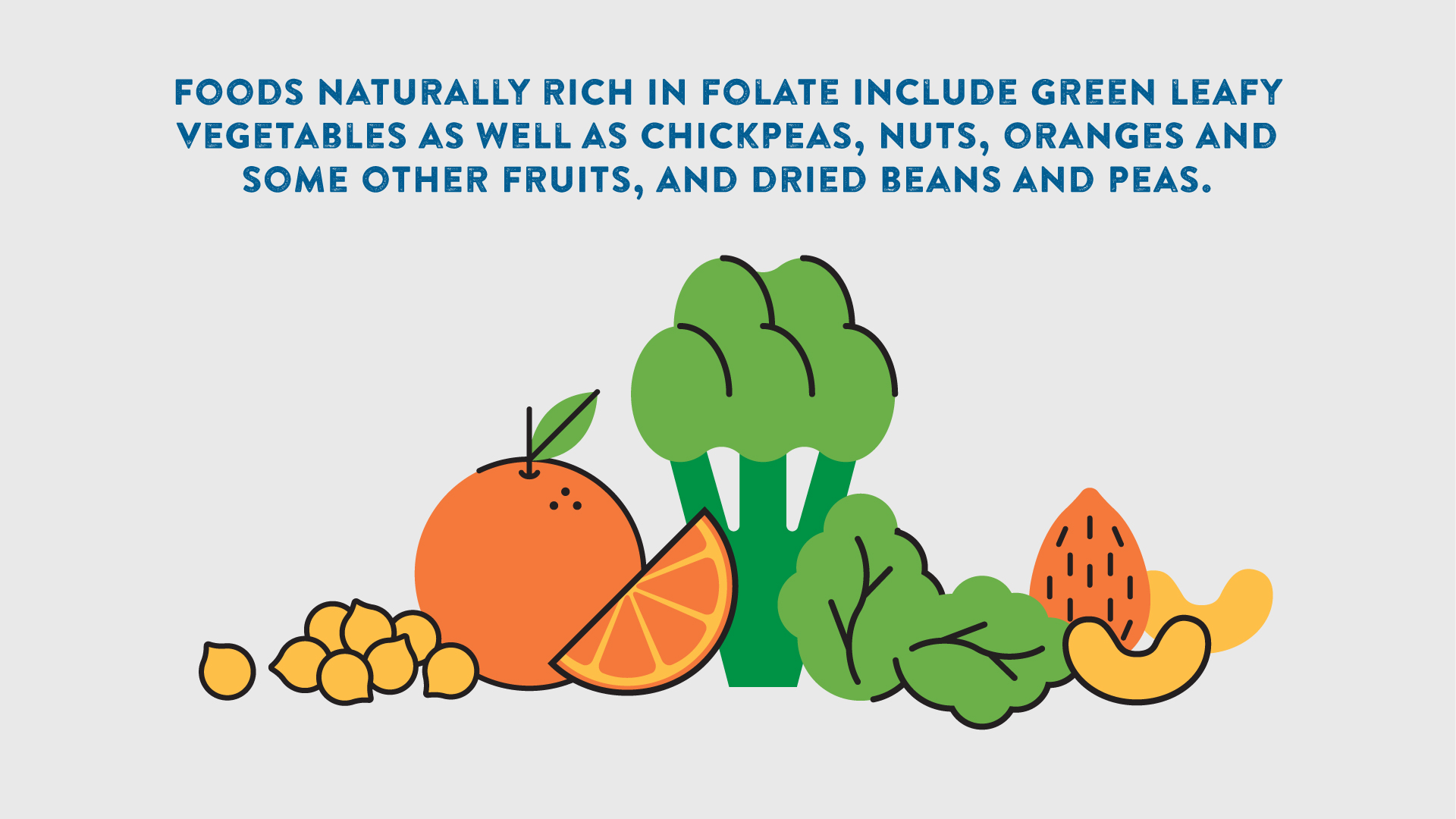
IODINE
Iodine is very important during pregnancy and breastfeeding for the normal development of a baby’s brain and nervous system. Too little iodine can cause learning problems for babies and young children and can also affect physical development and hearing. While seafood is a good source of iodine, the amount of iodine in other food, like vegetables and milk, varies depending on where it is grown and how it is made.
In recent years there has been a re-emergence of iodine deficiency in Australia – to combat this, the Australian Government requires standard wheat-based bread to be made using iodised salt, to boost iodine intake.
This rule does not apply to gluten-free bread, so those with coeliac disease need to be more conscious of iodine in their diet. Because pregnant and breastfeeding women have the greatest need for iodine, the National Health and Medical Research Council (NHMRC) recommends that all women who are pregnant, breastfeeding or considering pregnancy, take an iodine supplement of 150µg each day. Women with pre-existing thyroid conditions should seek advice from their doctor before taking a supplement. Kelp and seaweed supplements are not recommended as the iodine content is inconsistent.
IRON
More iron is needed during pregnancy. Babies draw enough iron from their mother during pregnancy to last them through the first five to six months of life. In addition, a woman’s blood supply increases during pregnancy. The recommended dietary intake (RDI) of iron for pregnant women is 27mg. Iron supplements may be prescribed during pregnancy.
The best dietary source of iron is red meat. Red meat has twice as much iron as chicken and three times as much as fish. Legumes and some vegetables also contain iron but in a form that is less available to the body. Vitamin C and meat can help enhance the absorption of iron from plant sources when they are consumed together.
ZINC
11mg of zinc a day is required to help regulate gene expression and to support the rapid cell growth that occurs during pregnancy (12mg a day if breastfeeding). Zinc is found in lean meat, milk, seafood, legumes and nuts.
VITAMIN C
Vitamin C requirements increase to 60mg a day during pregnancy (85mg a day for women who are breastfeeding) due to the mother’s larger blood volume and the growth of the baby. Excellent sources of vitamin C include fruit and vegetables, with 60mg found in one medium orange, or one kiwi fruit, or 40g of raw red capsicum.
VITAMIN D
Vitamin D helps the body absorb and use calcium and phosphorus and is important for the growth and development of your baby’s bones. In pregnancy, vitamin D deficiency has been linked to an increased risk of hypertension, higher rates of caesarean and preterm delivery, and gestational diabetes. The sun is the best natural source of vitamin D, but you need to balance your sun exposure against skin cancer risk. A 400IU vitamin D supplement is recommended during pregnancy for women.
SUPPLEMENTS
The Royal Australian and New Zealand College of Obstetricians and Gynaecologists states that a healthy balanced diet should largely reduce the need for vitamin and mineral supplements. However, pregnancy and lactation create extra nutritional demands that may make supplementation advisable. It is important to note that maternal micronutrient supplementation and foetal health is a developing science and under continual review.
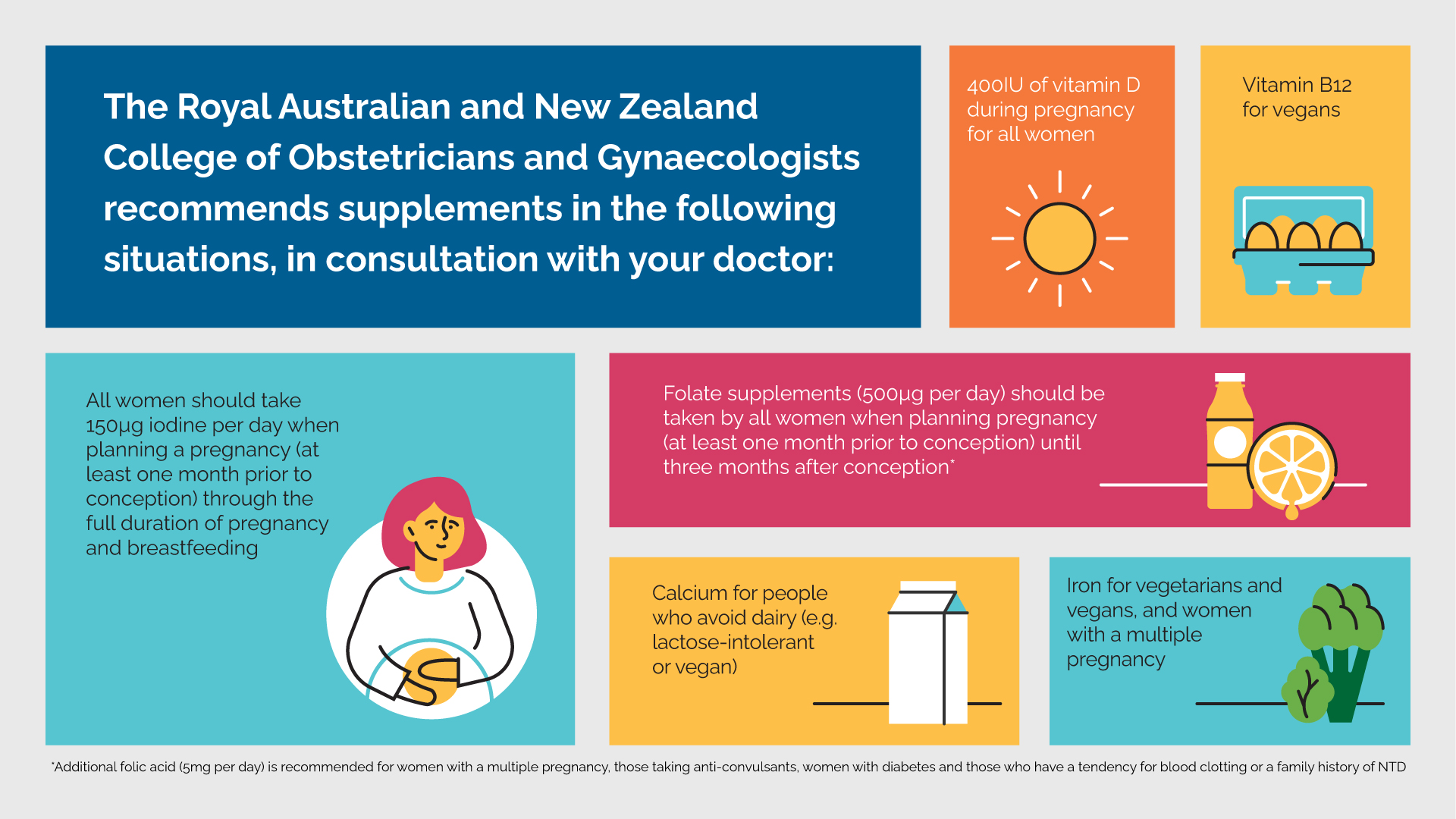
HOW TO DEAL WITH COMMON PROBLEMS DURING PREGNANCY
CONSTIPATION
Hormone changes in pregnancy may relax gut muscles which, when combined with pressure on the bowel from the enlarging baby, may cause constipation. Iron supplements, if prescribed, can also contribute to constipation. Eating more fibre, regular exercise and drinking plenty of water usually helps. It can be difficult to get enough fibre when on a gluten-free diet. The following tips may help:
- Swap white rice for brown
- Add rice bran, psyllium husks or LSA (linseed, sunflower and almond) to your breakfast cereal and when baking
- Choose a gluten-free wholegrain or multi-grain bread
- Eat whole, high-fibre, unpeeled fruit (four serves a day) and vegetables (five to six serves a day)
- Try nuts and dried fruit as a snack
- Eat more legumes, e.g. baked beans, lentils, chickpeas and kidney beans
- A fibre supplement may also help; speak to your dietitian
MORNING SICKNESS
Nausea and vomiting is common in early pregnancy and in many cases resolves by the end of the first trimester (sometimes it may persist). The exact cause of morning sickness remains unclear, and it can happen at any time of the day, but hormonal changes are thought to play a part. Morning sickness does not usually endanger the unborn baby, and, in fact, nausea has been found to be a protective factor against miscarriage. If severe and ongoing vomiting is experienced, it is strongly recommended that you see your doctor.
If vomiting, it is important to drink enough fluids. Also try these tips to help ease nausea:
- Eat small meals regularly. Missing meals can make nausea worse
- Avoid large drinks. Have frequent small drinks, preferably between meals
- Limit fatty, spicy and fried foods
- The smell of cooking food can make nausea worse. If possible, have someone else prepare meals, or prepare your food at times of the day when you feel better
- Try eating a dry gluten-free biscuit (perhaps a ginger biscuit) or cracker before you get out of bed in the morning
- Eat a healthy snack before you go to bed at night
- A ginger supplement, ginger ale or ginger tea may help
HEART BURN/INDIGESTION
As the unborn baby grows, pressure is placed on the digestive system. This may result in indigestion or heartburn (reflux) later in pregnancy. Try the following:
- Eat small meals and nutritious snacks regularly (avoid large meals)
- Drink between meals rather than with meals
- Limit high fat and spicy foods
- Eat slowly and always sit down to eat – avoid eating on the run
- Don’t eat when you are stressed or upset
- Wait one to two hours after finishing a meal before lying down
- Avoid coffee
READ THIS NEXT
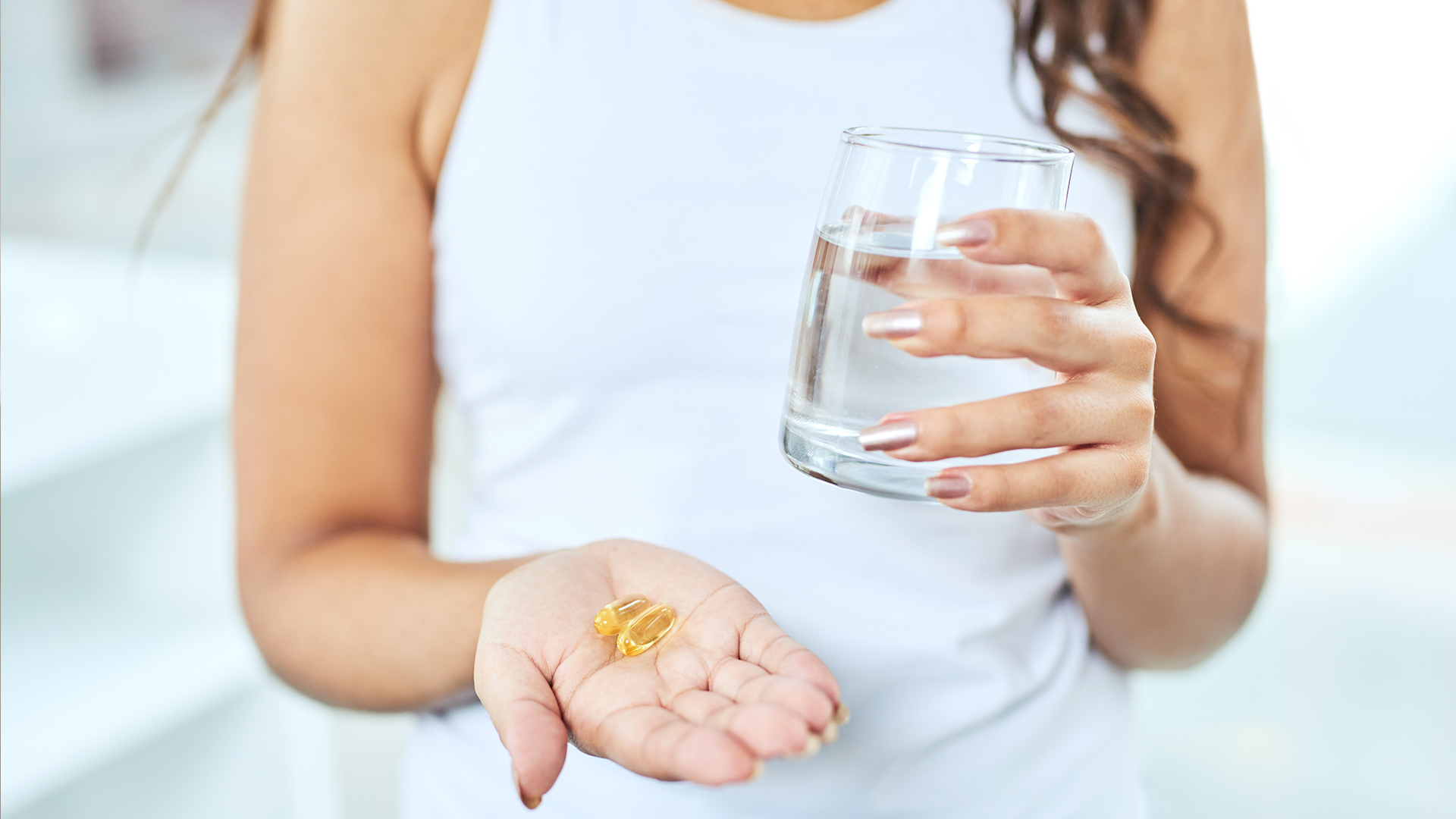
ARE MY SUPPLEMENTS GLUTEN FREE?
Can you still have your supplements if you have coeliac disease? Accredited Practising Dietitian and health expert with Coeliac Australia Penny Dellsperger shares her advice.
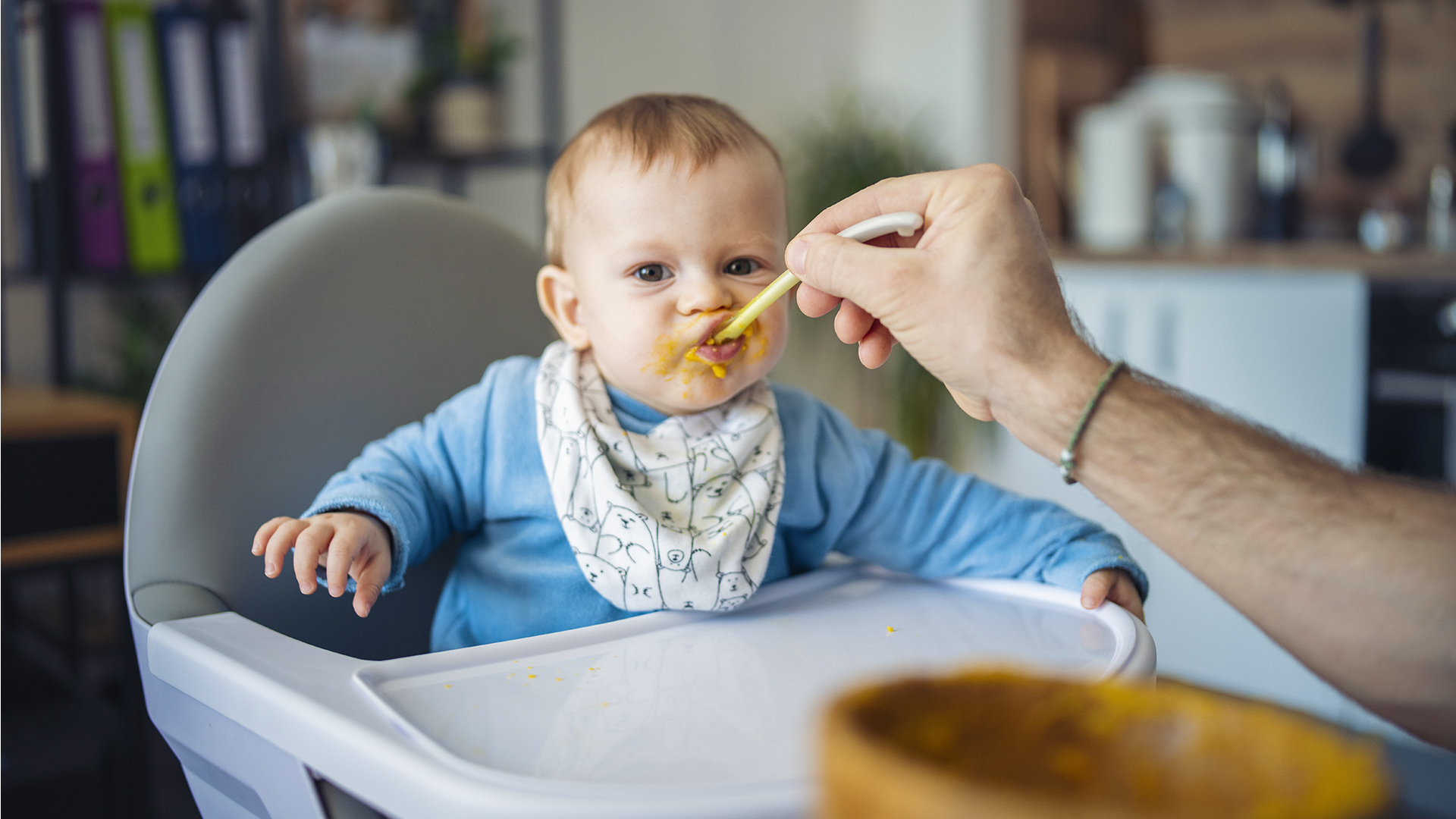
INTRODUCING GLUTEN TO YOUR BABY
Should you avoid feeding your baby gluten if there’s coeliac disease in the family? How much gluten is safe? Here’s what you need to consider.
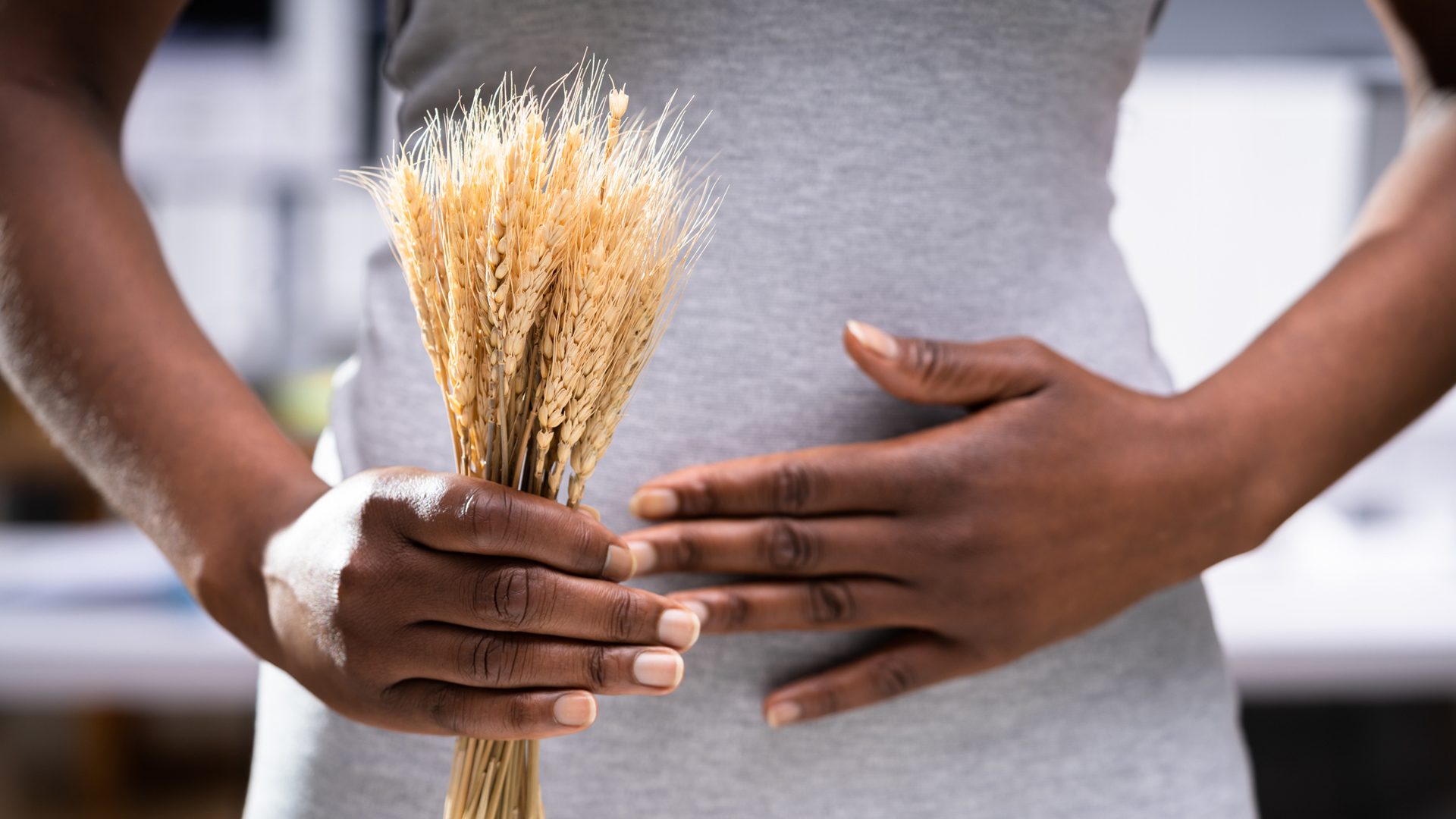
WHAT TO DO IF YOU ACCIDENTALLY EAT GLUTEN
If you have a gluten sensitivity or coeliac disease, you might know straight away after an accidental gluten intake. Here’s how to ease your symptoms.
See more




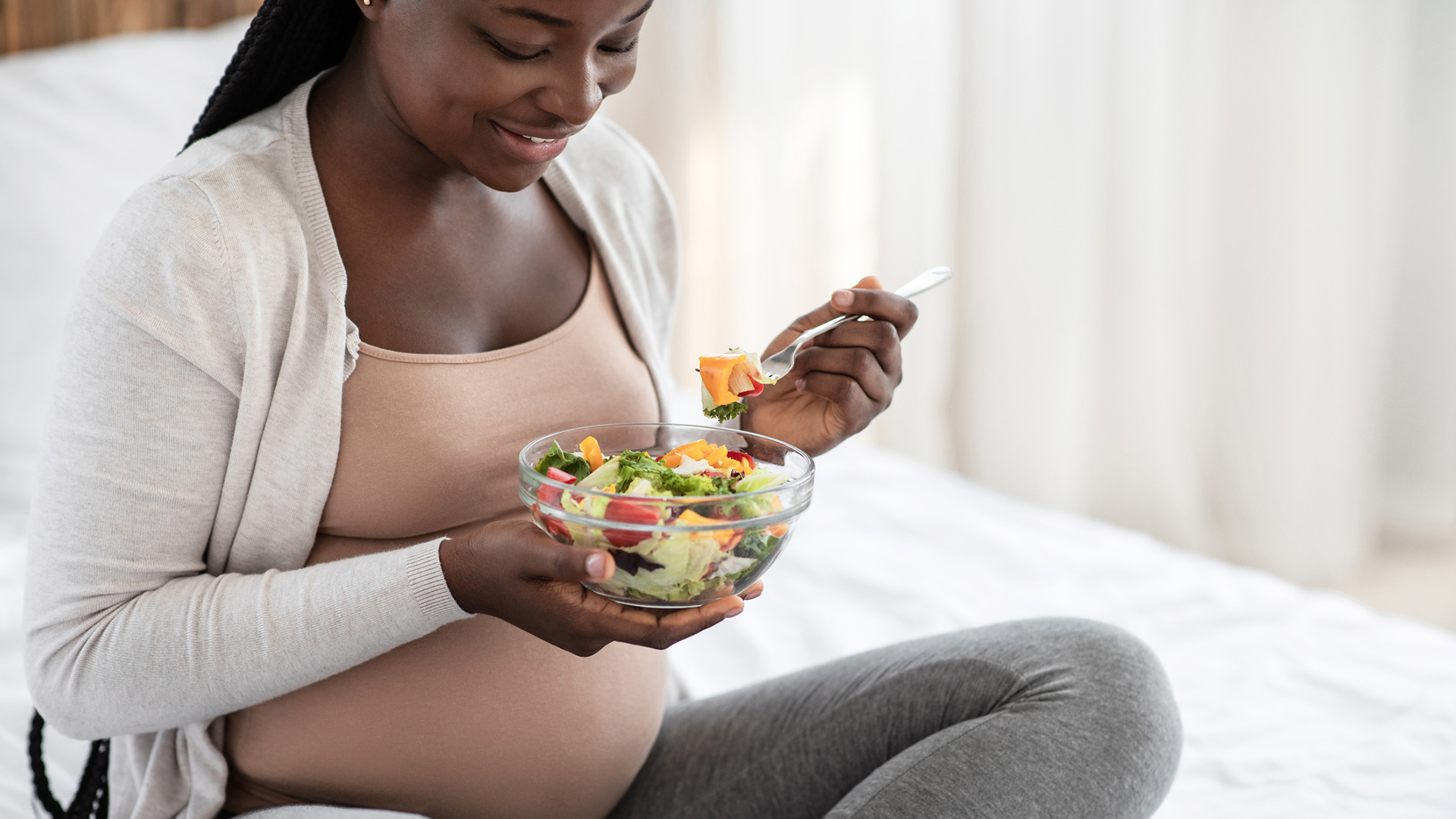




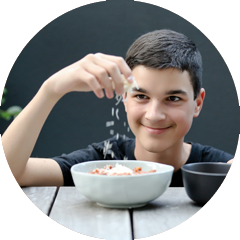




0 Comments